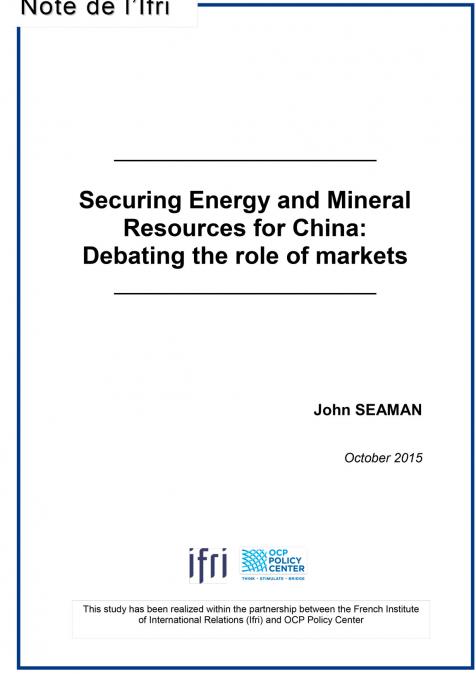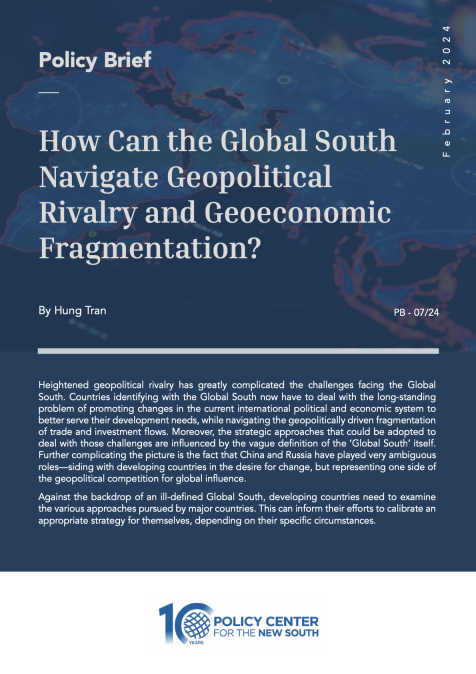Publications /
Policy Paper
This paper examines how China seeks to secure access to an evergrowing level of natural resources from overseas. In its quest for resources necessary to fuel its economy, does China seek to bolster the development of international markets, or rather to procure resources in a more mercantilist fashion?
China’s varied behavior in a broad range of resource markets suggest that there is no guiding principle that pre-ordains a common approach today. Three cases – oil, iron ore and rare earths – show three different Chinese approaches to issues of resource procurement and allocation. In the case of oil, China has shown an increasing acceptance of market principles over the course of the last decade. In iron ore, meanwhile, China’s strategy to gain a strong negotiating position within a pre-existing, closed system was ultimately upended by its inability to control its own market actors.
The result was the opening-up of a more fluid market. Finally, the rare earth case provides an example of China’s approach when it controls global production (albeit production within its own borders). China has been willing to contravene market principles in the rare earth trade either for diplomatic gains or to incite transfers of foreign technology to China. Nevertheless, it has also shown that it is not willing to sacrifice its participation in the broader system of international trade rules as laid out in the World Trade Organization (WTO). Ultimately, while China’s growing need for imported raw materials certainly poses a number of challenges, many of the concerns about China are exaggerated, or overlook emerging trends in the way Chinese companies do business overseas. In particular, fears of Chinese ‘mercantilism’ are tempered by the fact that Chinese companies have in practice served to reinforce and even improve, rather than contravene international market mechanisms for trade in resources. Skepticism of international market principles in China has seemingly waned over time, and Chinese leaders, strategists and companies seem increasingly convinced that markets play an important role in guaranteeing a level of resource security for the country.
Still, the complex relationship between China’s state-owned enterprises (SOEs), government policy, and Communist Party
leadership serve to blur the lines between corporate and national strategy. This will remain an area to follow as China’s weight in global affairs expands and evolves.






